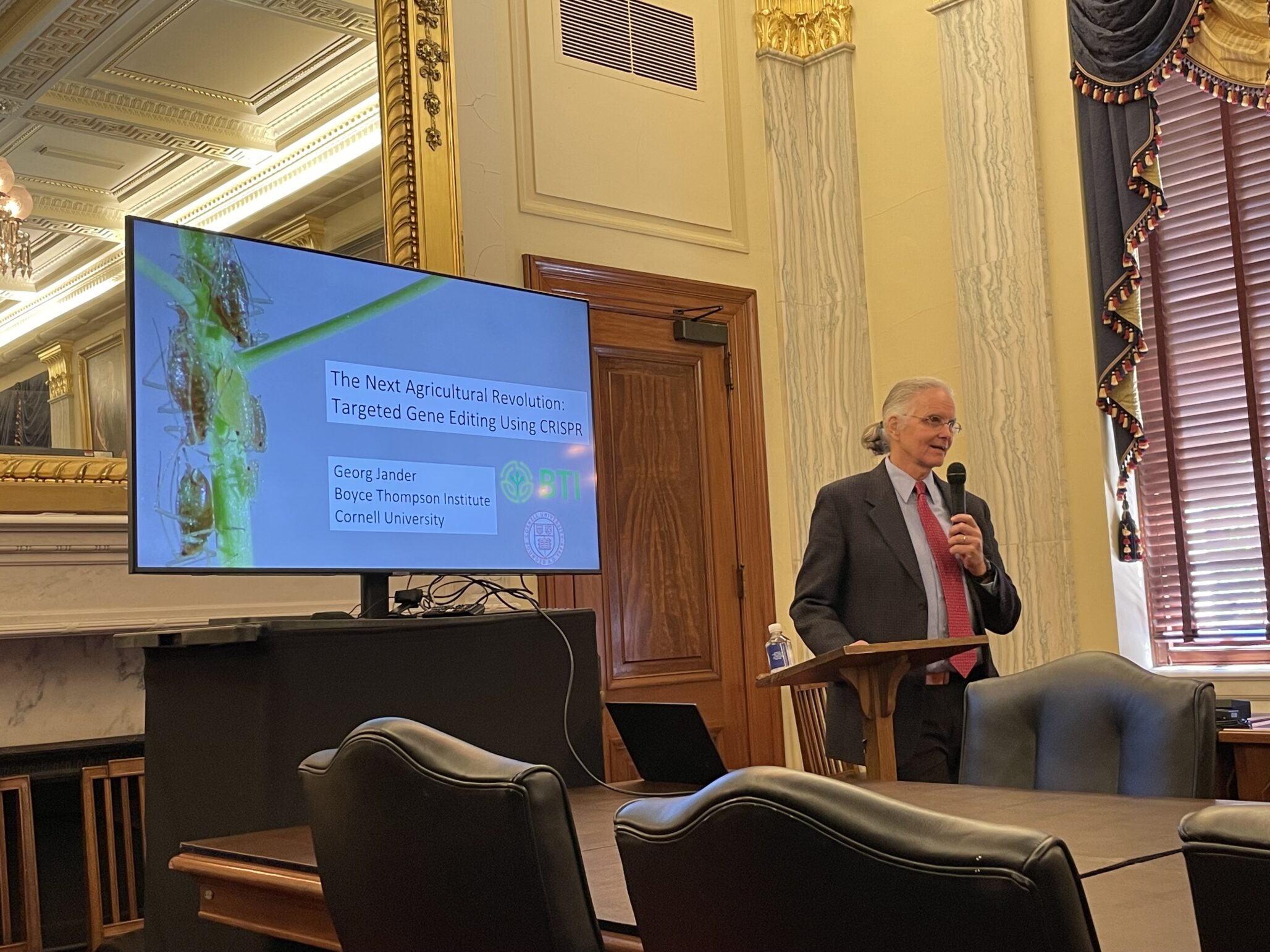Georg Jander, a Boyce Thompson Institute professor, recently addressed the U.S. Senate Committee on Agriculture, Nutrition, and Forestry about the potential of CRISPR gene editing in revolutionizing agriculture. In his presentation titled “The Next Agricultural Revolution: Targeted Gene Editing Using CRISPR,” Jander emphasized the importance of supporting emerging agricultural technologies.
During the presentation, Jander discussed how CRISPR technologies are transforming farming by allowing precise plant gene editing that was previously not possible. He was joined by industry experts Dan Jenkins from Pairwise and Emily Negrin from Inari, who provided insights into how their companies are utilizing CRISPR gene editing to improve crops.
Jander highlighted the potential of CRISPR to change agriculture by enabling the modification of crop genes to enhance positive traits, suppress negative ones, or introduce new characteristics from other species. He also emphasized how these technologies could increase food security, promote agricultural sustainability, and improve crop resilience.
In a news release following the presentation, Jander expressed his belief in the promise of CRISPR in creating a more secure and sustainable agricultural future. He called on policymakers to provide support and funding for these emerging technologies to ensure that they are accessible and affordable for farmers across the globe.
Overall, Jander’s presentation showcased the exciting potential of CRISPR gene editing in revolutionizing agriculture and improving food security for generations to come.


